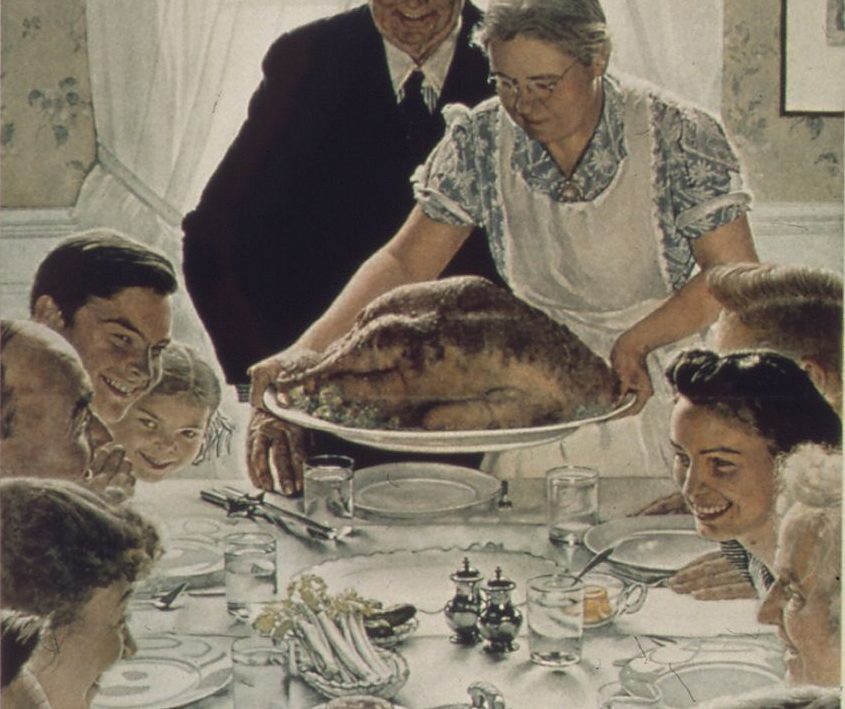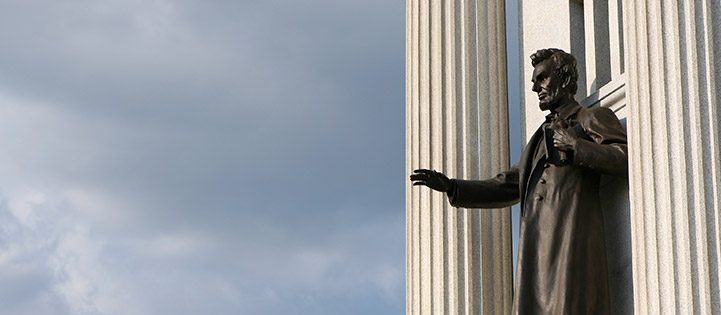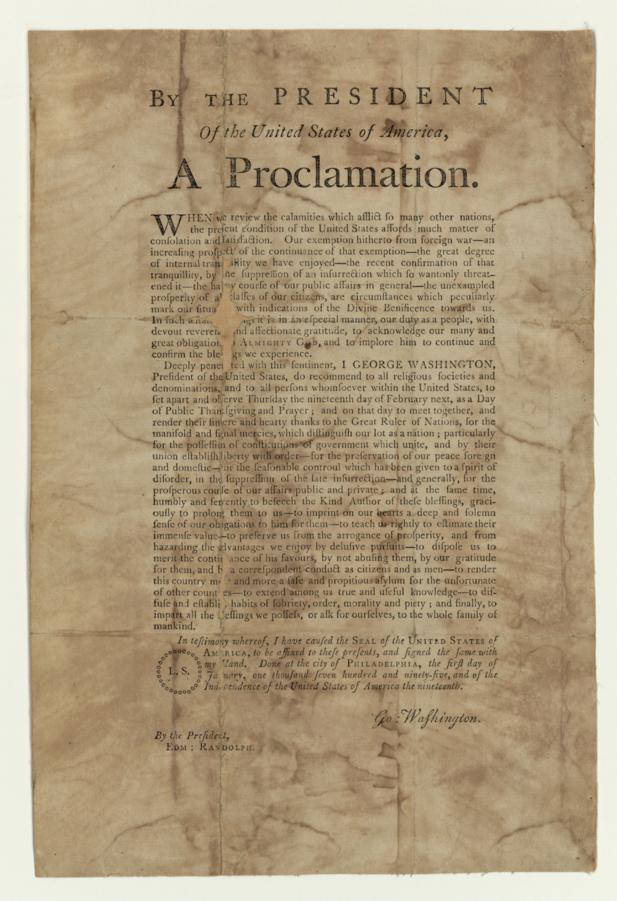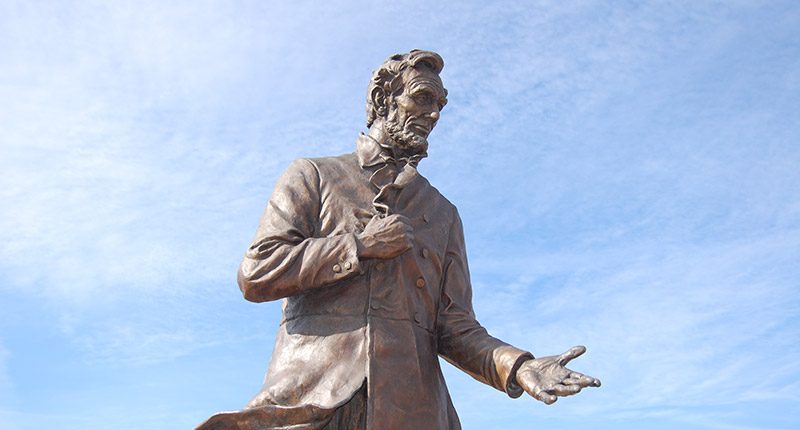Thanksgiving Wasn't Always a Source of National Unity.
That Which Unites Us

Thanksgiving remains one of our few unifying traditions.
Forget the countless op-eds about how to get along with your Republican uncle that, alongside turkey and dressing, have become a permanent feature of the season, especially under President Trump. Complicated family dynamics aside, Thanksgiving remains a unifying tradition in a country that has dangerously few of them.
Secularist attacks on the holiday have largely fallen flat, despite its origin as an expression of gratitude to “Most High God.” The decline of the family and community rootedness hasn’t stopped people from celebrating Thanksgiving with their friends and naming the practice. Even with pushback against the mythology surrounding the Pilgrims and American Indians at the first Thanksgiving, the observance has avoided becoming racially divisive.
When President Abraham Lincoln issued the proclamation that helped enshrine Thanksgiving as an annual national celebration, the country was truly divided. There was secession, not social media. Brothers took up arms against brothers. They did not merely shriek at Senators dining in restaurants or pound on television hosts’ doors.
“You may have observed that, for some years past, there has been an increasing interest felt in our land to have the Thanksgiving held on the same day, in all the States.” So newspaper editor Sarah Josepha Hale exhorted President Lincoln. “It now needs National recognition and authoritative fixation, only, to become permanently, an American custom and institution.”
Yet it is undeniable America is less held together by a common culture and core beliefs than at other points in our history. “What unites Americans today?” an author and columnist once asked this writer. “Sports, maybe?” Now even the Thanksgiving football games can be a source of division as we debate whether to stand or kneel during the national anthem and our flag.
Concepts like “liberty” and “equality” remain vital parts of the American lexicon and identity. But we are as split about what those terms mean in practice as Catholics are from Baptists on transubstantiation and purgatory.
The United States eventually came out of the Civil War with a stronger national identity than ever before, at great cost to the state sovereignty that had tamed Washington ambitions and limited the federal government. It was nevertheless a unity that came at the same time as the end of human bondage and slaves becoming citizens, if not yet full and equal participants in American civic life.
It is hard to see, by contrast, how our present condition could lead to greater national unity. Even the warring North and South could plausibly claim a greater similarity in belief and habit than seems evident in 2018. But these words are being written with the benefit of hindsight. Boys from Birmingham and Boston together storming the beaches of Normandy would have been as inconceivable from the vantage point of 1864 as the future today seems to us. Perhaps the ideological questions that separate red state from blue state will seem as small compared to future controversies as they often seem when compared to slave or free.
On Thanksgiving Day, homes from San Francisco to Nashville will be united in a shared tradition, even if it might now seem to take events of the magnitude of 9/11 to unite them in a common purpose. But a basic Americanness can be observed throughout the land every day of the year, from my hometown in Massachusetts to the Trump-voting rural communities in the reddest of states.
Our differences can be exaggerated, and in political debate they often are. Still, we could use a fortifying of what Lincoln called “the mystic chords of memory, stretching from every battlefield and patriotic grave, to every living heart and hearth stone, all over this broad land.” The recovery of such a shared national memory and spirit would truly be a cause for thanksgiving.
The American Mind presents a range of perspectives. Views are writers’ own and do not necessarily represent those of The Claremont Institute.
The American Mind is a publication of the Claremont Institute, a non-profit 501(c)(3) organization, dedicated to restoring the principles of the American Founding to their rightful, preeminent authority in our national life. Interested in supporting our work? Gifts to the Claremont Institute are tax-deductible.
How Abraham Lincoln created Thanksgiving.
We should be thankful for the sheer wonder of being.
The Genuinely American Debate over Federalism and Thanksgiving.
Allen Guelzo, Richard Brookhiser, Joseph Bottum, and Justin Dyer on the thought and action of Lincoln's Thanksgiving and his wrestling with God.
We must not ignore our extraordinary blessings.






